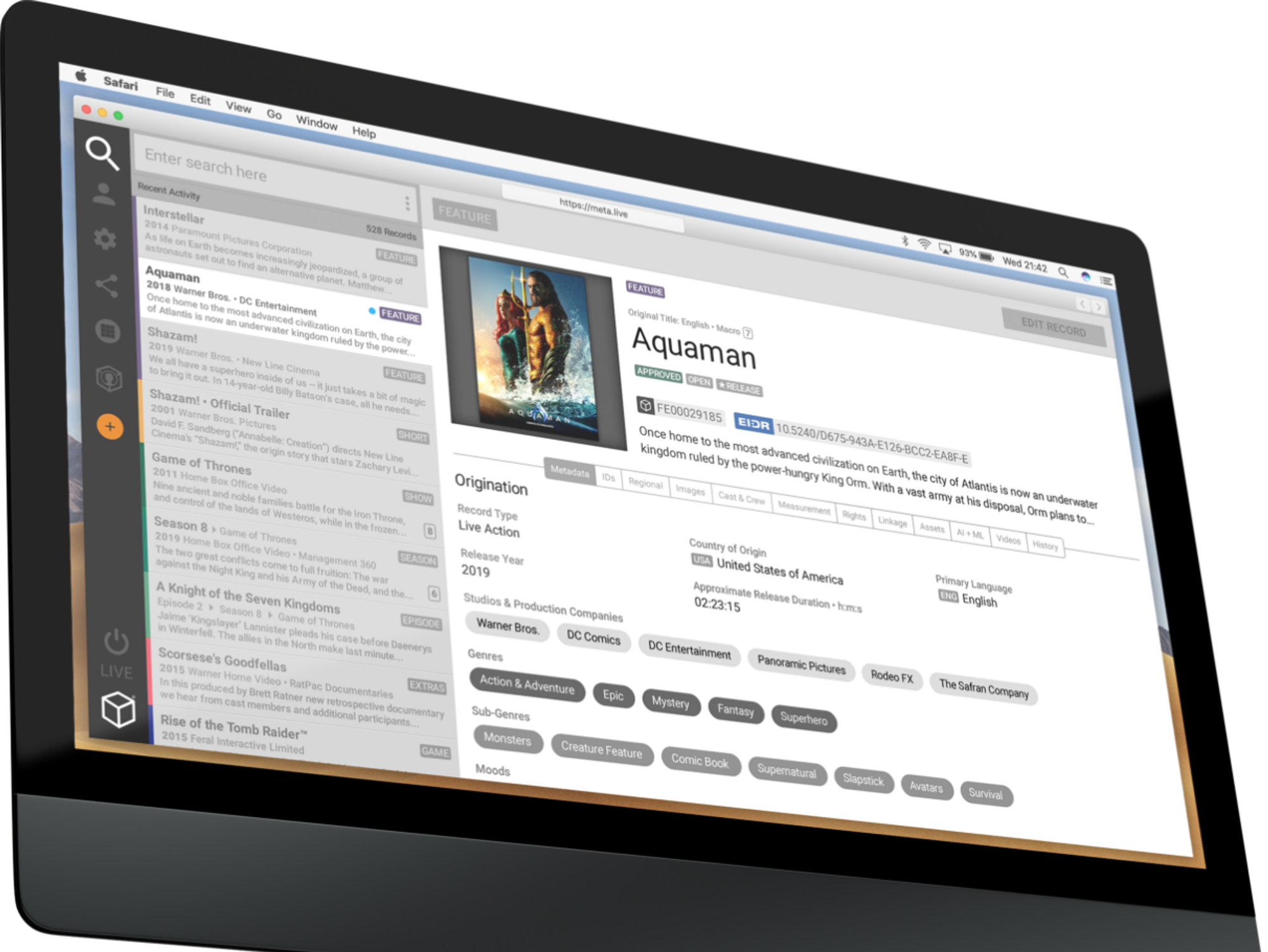Streaming Data Giant Meta Moves Its Headquarters to LA
Sam primarily covers entertainment and media for dot.LA. Previously he was Marjorie Deane Fellow at The Economist, where he wrote for the business and finance sections of the print edition. He has also worked at the XPRIZE Foundation, U.S. Government Accountability Office, KCRW, and MLB Advanced Media (now Disney Streaming Services). He holds an MBA from UCLA Anderson, an MPP from UCLA Luskin and a BA in History from University of Michigan. Email him at samblake@dot.LA and find him on Twitter @hisamblake

As Netflix, Disney, Amazon and others duke it out in the streaming wars, a growing list of tech companies that cater to their needs are benefiting.
Among them is Meta Data Software, a service that organizes massive content libraries, supplementing television shows, films and other content with rich data — from the cast and crew members involved to legal and licensing information.
Founded in London in 2018 and serving its SaaS product to catalog-owning clients that include MGM, Fox, WarnerMedia and Epix, Meta is now moving its home base to L.A.
Its biggest project may be yet to come. Amazon is poised to swallow its client MGM's iconic library, home to 4,000 films including the Bond franchise and such classics as "Rocky", along with 17,000 television shows.
Earlier this summer a group of investors led by Rob Delf paid $3 million for a majority stake in Meta. Delf, who previously led Santa Monica-based data management service Rightsline, has assumed the CEO role at Meta. Meta's founder and former CEO Robin Tucker will serve as its chief product officer from London.
"As streaming services have exploded, and the types of features and functionality that they've delivered becomes more sophisticated...the kind of requirements around the data that you need to hold really expand exponentially," said Tucker, a former designer at Apple.
Other companies supporting the new streaming world from the periphery include Struum, a consumer service that bundles different services into a single subscription, and Brainbase, a data management system for intellectual property including trademarks and patents.
"[Entertainment companies] have to be able to access their libraries all the time, and be able to track where different things are licensed for, which rights, for how long and they really need to have an organized way of doing it because otherwise they will make mistakes and do inconsistent deals," said entertainment-tech lawyer Richard Thompson.
The recent flurry in streaming of M&A activity has made keeping all the data straight more challenging, said Thompson. Amazon announced it had acquired MGM in May, less than two weeks after WarnerMedia's HBO Max and Discovery announced plans to merge. Rumors are swirling that independent studios including Reese Witherspoon's Hello Sunshine and LeBron James' SpringHill Entertainment are exploring sales.
"When you have two different hunks of libraries that now need to be managed together, to find ways to consolidate that management under one system is definitely an opportunity for this kind of thing," Thompson said.
Delf said his priorities over the next 18 months include finding more customers – namely studios and streaming platforms – and hiring people in customer support, sales and account management roles.
Meta occupies a niche of the entertainment industry known as the media supply chain. Companies that own content libraries – studios like Disney, streamers like Netflix, for example – use an amalgam of systems to help keep track of the different kinds of data that accompany the many titles in those libraries: things like licensing rights, distribution schedules and audio-dubbing files.
Meta helps media giants manage their metadata: including titles, synopses and content ID numbers. In the past, that has often been a painstaking process done with spreadsheets.
Meta's technology includes a user-friendly data management interface and AI tools that can automate mundane duties like filling in missing data. With this, Delf said Meta has reduced the time requirement for some tasks – like preparing a show to launch in a new market – "from 75 minutes to five seconds." The company also claims to have saved its customers over $10 million annually compared to manual data management.
"As an investor and an entrepreneur, really it's about better, faster and cheaper," Delf said.
Tucker, the former CEO turned CPO, said that in contrast to the sleek user interfaces that entertainment executives are used to, data management software has typically been a clunky stepchild. Part of his vision is to give those execs an easy, aesthetically pleasing interface.
"If he could solve that, then he's halfway to the solution," Thompson said.
- Prewitt Ridge's Steve Massey on Scaling Systems Engineering - dot ... ›
- Brainbase Launches Two New Trademark Tracking Products - dot.LA ›
- Brainbase CEO Nate Cavanaugh on Striking Out as a Young CEO ... ›
- Reese Witherspoon's Hello Sunshine Sold to Kevin Mayer and Tom Staggs' Media Startup - dot.LA ›
- Meta Quest Pro Comes With Hefty New Price Tag - dot.LA ›
Sam primarily covers entertainment and media for dot.LA. Previously he was Marjorie Deane Fellow at The Economist, where he wrote for the business and finance sections of the print edition. He has also worked at the XPRIZE Foundation, U.S. Government Accountability Office, KCRW, and MLB Advanced Media (now Disney Streaming Services). He holds an MBA from UCLA Anderson, an MPP from UCLA Luskin and a BA in History from University of Michigan. Email him at samblake@dot.LA and find him on Twitter @hisamblake



 Image Source: Revel
Image Source: Revel
